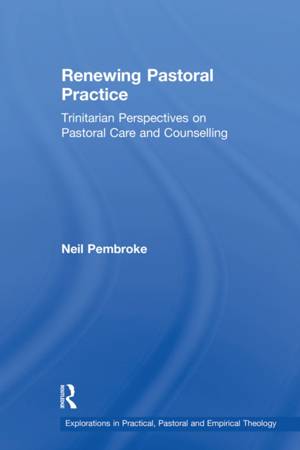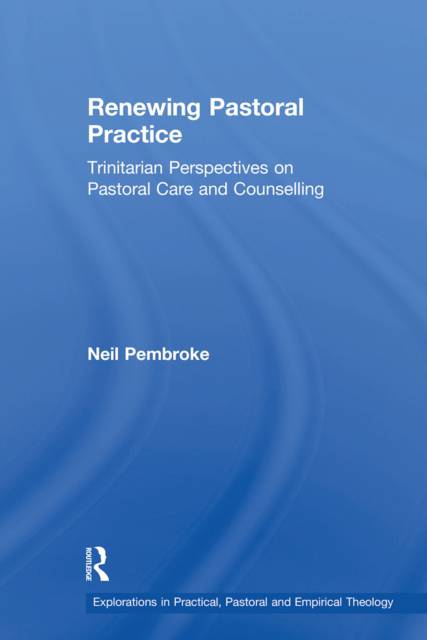
Je cadeautjes zeker op tijd in huis hebben voor de feestdagen? Kom langs in onze winkels en vind het perfecte geschenk!
- Afhalen na 1 uur in een winkel met voorraad
- Gratis thuislevering in België vanaf € 30
- Ruim aanbod met 7 miljoen producten
Je cadeautjes zeker op tijd in huis hebben voor de feestdagen? Kom langs in onze winkels en vind het perfecte geschenk!
- Afhalen na 1 uur in een winkel met voorraad
- Gratis thuislevering in België vanaf € 30
- Ruim aanbod met 7 miljoen producten
Zoeken
€ 86,95
+ 173 punten
Uitvoering
Omschrijving
This is the first comprehensive treatment of the relationship between the doctrine of the Trinity and pastoral care and counselling. Neil Pembroke contends that an in-depth reflection on the relational dynamics in the Godhead has the capacity to radically renew pastoral practice. Pembroke applies the notion of relational space to care in a parish setting. The life of the triune God is defined by both closeness and open space. The divine persons indwell each other in love, but they also provide space for the expression of particularity. This principle of closeness-with-space is applied in three different pastoral contexts, namely, community life, spiritual friendship, and pastoral conversations. The specialized ministry of pastoral counselling is the focus in the second half of the book. Informing the various explorations is the principle of participation through love: the divine persons participate in each other's existence through loving self-communication. Pembroke shows how this trinitarian virtue is at the centre of three key counselling dynamics: the counselling alliance, empathy, and mirroring.
Specificaties
Betrokkenen
- Auteur(s):
- Uitgeverij:
Inhoud
- Aantal bladzijden:
- 126
- Taal:
- Engels
- Reeks:
Eigenschappen
- Productcode (EAN):
- 9781032243542
- Verschijningsdatum:
- 13/12/2021
- Uitvoering:
- Paperback
- Formaat:
- Trade paperback (VS)
- Afmetingen:
- 156 mm x 234 mm
- Gewicht:
- 185 g

Alleen bij Standaard Boekhandel
+ 173 punten op je klantenkaart van Standaard Boekhandel
Beoordelingen
We publiceren alleen reviews die voldoen aan de voorwaarden voor reviews. Bekijk onze voorwaarden voor reviews.









